From performances with Aretha Franklin, Gladys Knight and Jennifer Holliday, to serving as a professor of Black Music in America and Social Justice at WSU, Darryl Singleton has had a rollercoaster of a life.
There is one constant, however: music, and his passion for it.
Singleton played his first instrument, the piano, when his mother decided that the family needed “culture” in their lives. She set up lessons that kickstarted his true journey into music, which he said does not only play a huge role in his own life, but its role is prevalent in all people.
“Music touches everybody,” he said. “There’s so much background music, you can’t go too many places without hearing it.”
More than its seeming omnipresence, musics importance is shown through culture. In fact, Singleton said music is an inseparable part of humanity and is ingrained in its culture.
“Music is one of the carriers of cultural identity, cultural aesthetics and all these different things,” Singleton said. “It carries a lot of the expressiveness of those people, and music, like any art form, has a lot to do with sharing how people see the world, how people view their existence, how people view their meaning in life.”
Singleton tries to embody this world-encompassing culture through his own music, hoping that people will see it as that “piece of humanity.”
Before becoming an assistant professor at WSU, Singleton had an impressive background filled with various academic institutions and musical programs. This included being a professor at three esteemed universities across the U.S., as well as serving as the president for Texas Black Music Educators.
A multitude of other social activist groups, orchestras and committees welcomed Singleton over the years, where he lived out his passions in music and advocacy.
In 2021, Singleton was hired at WSU as a part of the then-new cluster hire program initiated by Provost Elizabeth Chilton. His adventures of activism and orchestra work did not stop there. From serving on the Martin Luther King Week committee to establishing two ensembles, he remains as active as he was in the past.
One event he is involved with is the drum circle for MLK Week, which he said is a huge cultivator of community, another important feature and goal of his music.
“I tend to facilitate the aspect of community, the aspect of remembrance and the aspect of all of us sitting around this circle making music together is a microcosm of how a world in harmony could be,” Singleton said.
It also represented exactly what the week was striving to convey through its idea of “one part of a whole,” he said.
“I believe we’re supposed to be in this world, everybody contributing, not necessarily trying to overshadow the person to one side or to the other side across the circle,” Singleton said. “Just everybody contributing of one mind, of one direction, one purpose, one harmony.”
Whether it be for social activism or simply a metaphor for life in general, music and the harmonies Singleton creates an aim to improve not only his own life, but also that of those around him, reaching world culture, and, thus, humanity.


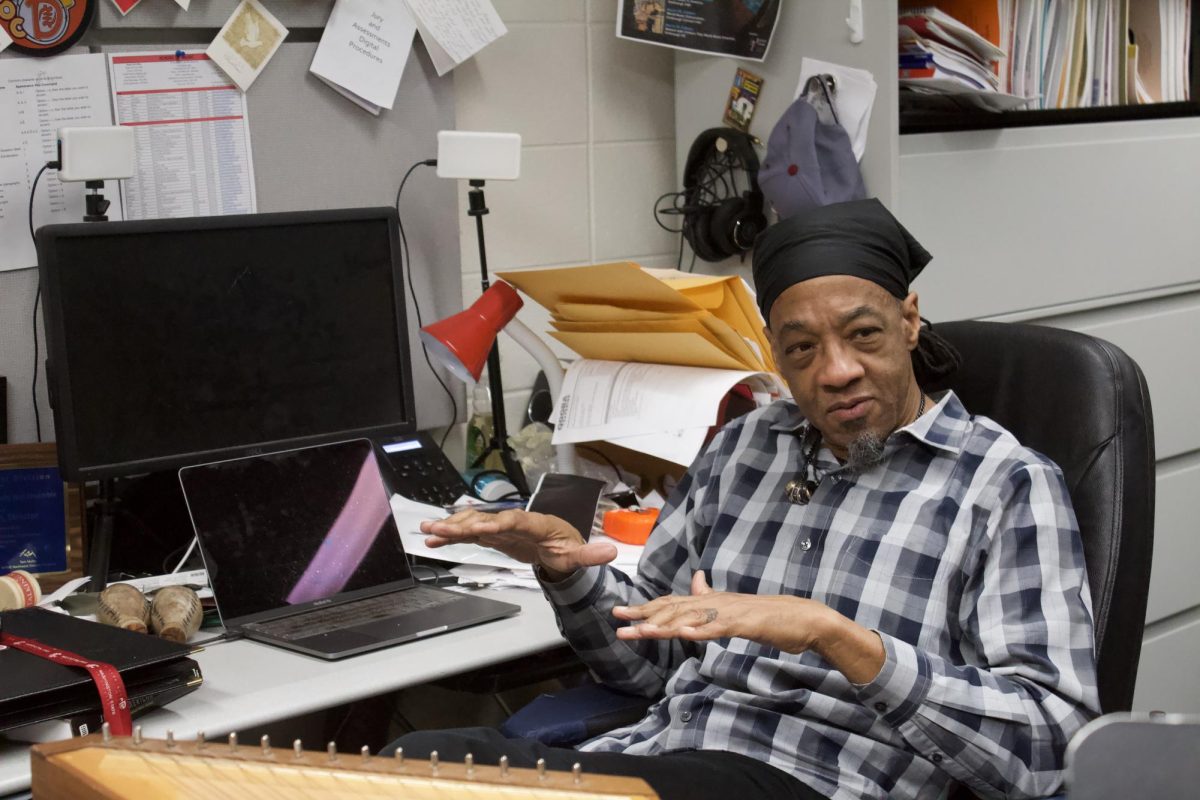


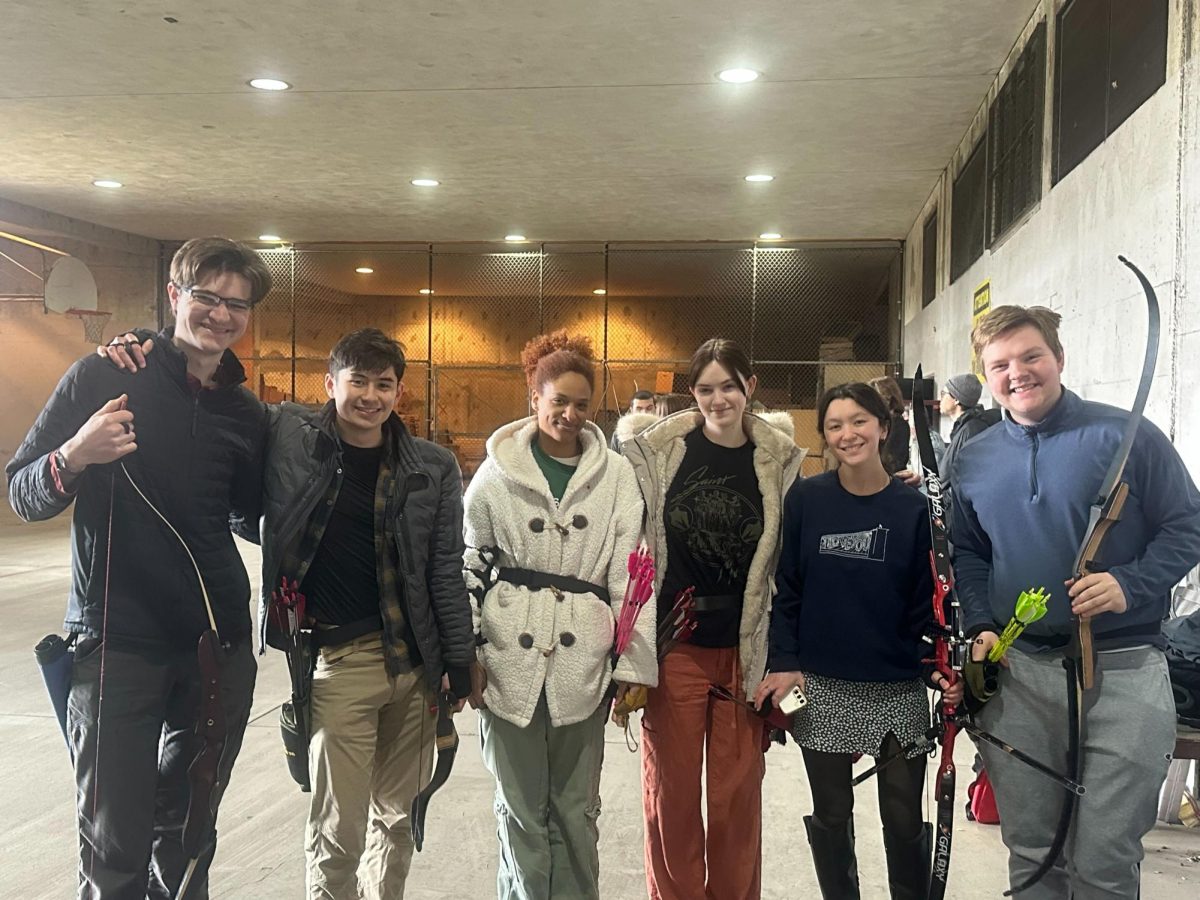
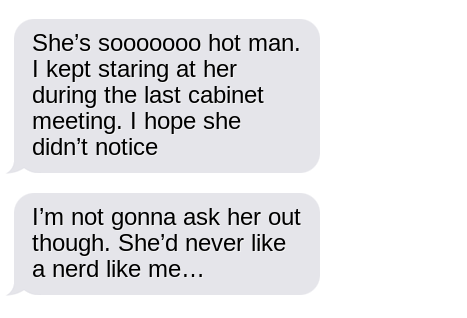
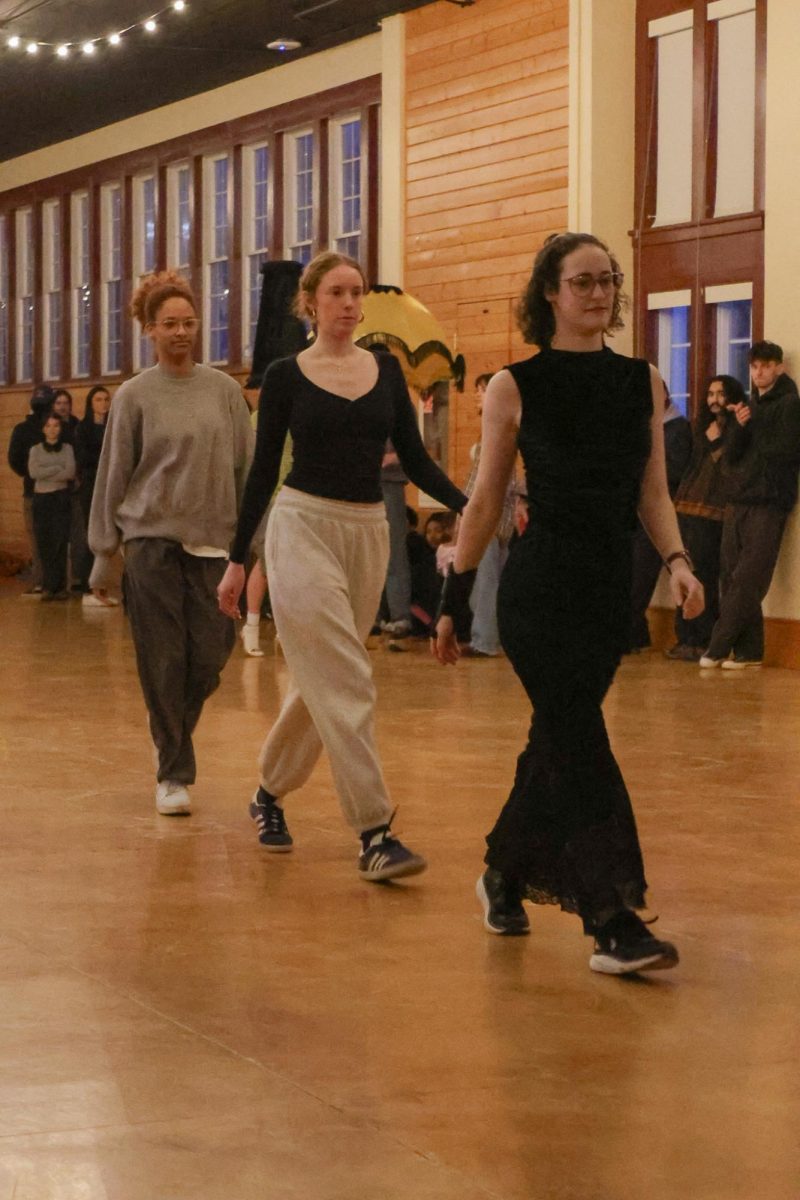
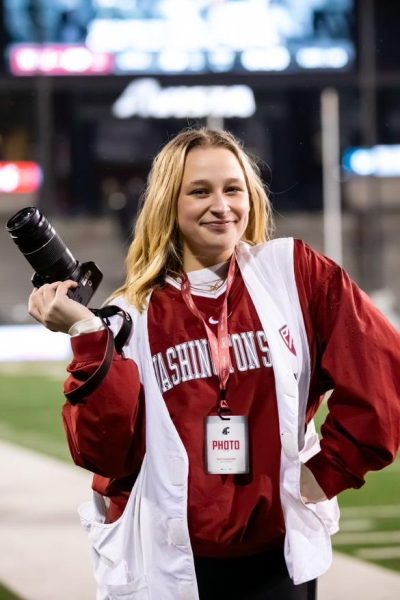


Steve and Donna Sacks • Feb 5, 2025 at 4:46 pm
Donna and I are family of Darryl and Kay. We take great pleasure in his professional accomplishments. even far way in the DC metro area where he grew up. He is an amazingly talented, creative musician from a family of creative talented folks! We wish him all the best!
Steve and Donna